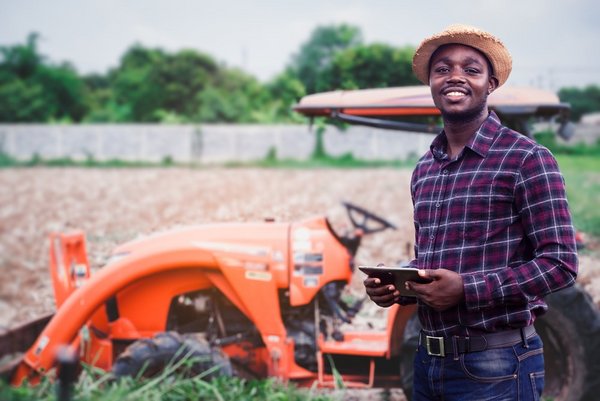 Read this article in French
Read this article in French- Share this article
- Subscribe to our newsletter
Agricultural mechanisation and sustainable agrifood system transformation
Africa’s agriculture is set for a major transformation. South of the Sahara, 80 per cent of it is still done with hard manual labour, above all by women and children, and in tough, tropical conditions. However, a major thrust of mechanisation can be reckoned with over the coming years, according to Dr Thomas Daum, an agricultural expert at the Hans Ruthenberg Institute of Tropical Agricultural Science at the University of Hohenheim in Stuttgart/Germany. “An increased use of machinery can help reduce the workload and combat poverty and hunger. This is a great opportunity to make agriculture more sustainable socially and economically,” Daum maintains. “But success can only be achieved if politicians learn from the mistakes and positive experiences of other world regions. Here, in particular, solutions are also called for which protect soils and biodiversity, making mechanisation ecologically sustainable as well.” The expert explains what counts here in a background analysis for the latest FAO flagship report on “The State of Food and Agriculture”.
Daum’s report analyses prospects and risks in the context of the mechanisation of agriculture in the Global South, focusing on developments which have already taken place in many regions of Asia and can be reckoned with in Africa as well in the coming years. His background report is also based on his own research in Africa and Asia, above all in Benin, Ghana, Kenya, Mali, Nigeria, Zambia and India.
Avoiding unemployment and conserving biodiversity
The conclusion he draws comprises concrete recommendations for agricultural, economic, environmental and social policies. The focus here is on issues such as how to avoid unemployment and conserve biodiversity. Furthermore, in the expert’s opinion, forward-looking measures are called for to protect soils. At the same time, Daum says, politicians have to ensure that small farms are not among the losers of development and that women also benefit from mechanisation.
Daum’s background analysis has contributed to the latest FAO report on “The State of Food and Agriculture”, and a complete version of it can be called up on the FAO website.
Government guidance only makes sense in the right places
“The use of machinery can help reduce hard manual labour in tropical conditions and make up for workforce bottlenecks. This is what offers major opportunities for economic development in African countries,” the scientist explains in his analysis. “Since higher yields are often possible on existing land, machinery could also play a role in conserving rainforests and savannahs.”
However, Daum stresses that this positive ecological effect does not occur automatically. “Developments can also result in an expansion of cropland and more large areas of monocultures. This is why clever land use planning is paramount,” he says. “Here, one important goal must be to preserve the mosaic-like area structure of smallholder farming, for this is indispensable in preserving biodiversity. Here, political action is called for. But technical solutions for appropriate mechanisation are needed as well, such as smaller tractors and two-wheel tractors.”
The expert stresses that in other areas, politicians would do well not to intervene too much with steering measures. “Public efforts to import and massively subsidise machinery can result in unemployment,” Daum warns. “In contrast, if mechanisation is left up to the free forces of the market, such as increasing rural wages thanks to structural change, this negative effect usually cannot be detected. Rather, it has become apparent that, in these conditions, unpaid family work is usually eliminated and more children get the chance to go to school.”
(Universität Hohenheim/wi)
More information:
Background paper on the FAO report, Dr Thomas Daum
FAO report on “The State of Food and Agriculture 2022”





Add a comment
Comments :